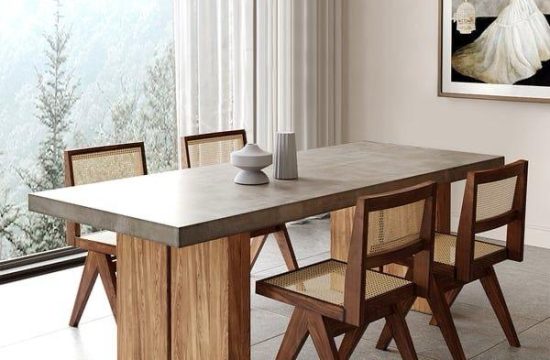More and more farmers, villages, and communities on the island of Java are planting teak trees (Tectona grandis) as an investment for the future. This is good news for a densely populated country with a growing demand for valuable wood.
Teak is a high-quality wood valued throughout the world for its beauty and durability. Premium teak is a tropical hardwood that is most sought after for prestigious furniture, boat building, and decorative uses in construction. Exports of Indonesian teak furniture always increase every year. Due to this demand, the teak market in Indonesia is very well established and is an important source of employment and income for the community.
There are thousands of furniture manufacturing companies in Java. Jepara, one of the most important furniture-producing districts on the island, has more than 3000 officially registered companies. In addition, there may be up to 3 million unregistered companies of various sizes, employing 6 million people or 6% of the total population of Java. These companies are engaged in a variety of livelihoods, and most of them carry out activities related to teak wood. This figure will increase further if we include illegal logging of teak trees in the wild.
Environmental services and sustainable use of forests are found in privately owned teak plantations everywhere. This plant is found in large areas belonging to villages or communities which are only intended for teak plants. Some are very well managed, with good spacing, and show large investments in labor and capital.
The state-owned company Perum Perhutani has 3 million hectares of forest and plantations on the island of Java and dominates the teak market. Before 1998, private sales of teak wood were prohibited. Even now private agents who want to sell this wood need at least three special permits. Despite disincentives, people continue to plant teak in their own plantation area to meet their own wood needs, as ‘savings’ for their children and to use when needed. Currently, a new system is being developed using new land, adding to existing teak land.
Despite constraints in market access and wood quality, the large number of areas recently planted with teak indicates that teak is an attractive option for community investment. High market prices and stable conditions attract investment in teak plantations. Doors are open for rural agents due to low capital, seed, and labor requirements, most of which are concentrated in the first 3 years. However, these two things are often found in rural areas in Java.
Due to its slow growth cycle and the type of end product, teak plays an important role in soil and water conservation and sequesters large amounts of carbon.
–sh












